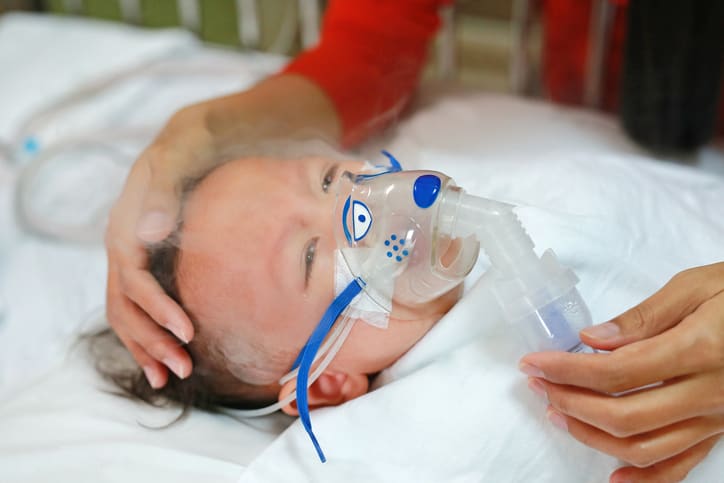Protect your family from RSV, because it isn't just a cold

[5 min read]
In this article:
-
A annual surge in RSV is driving a high number of hospitalizations, with many emergency departments and urgent care centers reaching capacity on a regular basis.
-
Most patients with RSV can be treated at home with medications like acetaminophen or ibuprofen (if older than 6 months) to help with fevers and discomfort, and by making sure babies and children stay hydrated.
-
Young infants and those with compromised immune systems may be at higher risk of complications from RSV.
-
A Swedish expert offers advice on identifying and treating RSV, and when to seek medical attention.
What is the current concern?
What does RSV look like at different ages?
How can I tell the difference between RSV, a cold, the flu and COVID?
Who is at highest risk of severe illness from RSV?
Is there any way to prevent or treat RSV?
The great news is, we now have ways to prevent severe RSV in the most at risk infants (those who are very young, premature, or with serious medical conditions)! Pregnant patients can receive an RSV vaccine between 32 and 36 weeks of pregnancy that works to protect their newborn from severe RSV illness through their first fall/winter season. This vaccine is typically given between September and March in most of the United States. The vaccine is most effective when given at least 14 days prior to delivery of the baby. If a pregnant person is unable to get the maternal RSV vaccine or the baby is delivered less than 14 days after the maternal vaccine, the newborn can receive a dose of the infant RSV vaccine. This is given to babies in their first fall/winter season if they are less than 8 months old and are not protected by the maternal vaccine given as above. Some older infants with underlying heart or lung conditions may also qualify to receive this vaccine.
For everyone else, our best tools are those we use to prevent the spread of illness in general – handwashing, mask-wearing, staying home from work, school or daycare when sick, and avoiding anyone who has respiratory symptoms. If you are breastfeeding your child, they are likely to get some great antibodies from your breast milk which can help prevent illness as well! Additionally, not smoking can help decrease risk of RSV in your child.
Treatment of RSV is supportive. At home this may look like gentle suctioning of the nose to make breathing and feeding easier, a cool-mist humidifier, medications like acetaminophen or ibuprofen (if older than 6 months) to help with fevers and discomfort, and making sure babies and children stay hydrated. Children with respiratory illness may need to eat and drink smaller amounts more frequently, as congestion and illness symptoms can alter their normal feeding patterns. In the hospital, we provide supportive care as well with suctioning, hydration (which may need to be given through an IV or a feeding tube if the baby is unable to feed well), and oxygen or breathing support when needed.
If you have questions about vaccinations or your child’s wellness health, Swedish Pediatrics can help. If your kids aren’t up to date on immunizations, particularly the measles vaccine, call their pediatrician today to schedule a visit.
You can contact Swedish Primary Care to schedule an appointment with a primary care physician or advanced care clinician. If you or a child has symptoms, you can connect virtually with a member of your care team who can review the symptoms, provide instruction and follow up as needed. With Swedish ExpressCare Virtual you can receive treatment in minutes for common conditions such as colds, flu, urinary tract infections, and more. If you don’t have a doctor, use our provider directory to find a specialist or primary care physician near you.
Information for patients and visitors
Additional resources
Is it strep throat or a sore throat?
Whooping cough is making a comeback. Here’s what you should know.
Measles cases are on the rise. Here's what you should know.
Growing Up Safely: Immunizations + Health | Talk with a Doc Podcast
At Providence Swedish, the best care for kids of all ages
This information is not intended as a substitute for professional medical care. Always follow your healthcare professional's instructions.


